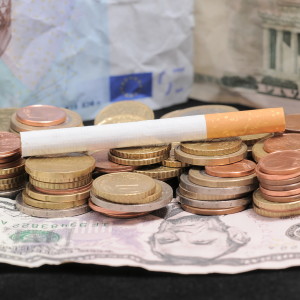UN Global Warming Talks Operate in the Open, While UN Anti-Tobacco Meetings Occur in Secret
This week, leaders from around the world continue their gathering in Paris to discuss a global agreement on how to deal with climate change, an exercise that will most assuredly produce enough hot air to send global temperature readings soaring.
The 21st session of the United Nations’ Framework Convention on Climate Change Conference of the Parties (COP21) is already sparking some of the most preposterous plans to stifle commerce, trample individual liberty and stamp out prosperity since the fall of the Iron Curtain.
For all its faults, however, the global warming gathering does have one very important thing going for it: transparency.
More than 3,000 accredited journalists are reporting on the event and the public has access to up-to-the-minute reports as world leaders debate policies.
According to the official COP 21 website, France has even dedicated an area that is hosting “debates, conferences, cultural exhibitions, film screenings, as well as stands presenting civil society solutions to climate change.”
Clearly, efforts are being made to encourage people to follow and, in limited ways, even participate in the UN’s global warming policy debates, even if those opportunities tend to exaggerate climate change realities and favor sweeping, big government strategies.
It is certainly a very different scene than last year in Moscow at one of the UN’s other major international policy making conferences, the Framework Convention for Tobacco Control (FCTC).
The FCTC’s Conference of the Parties, held every two years by the UN’s health arm, the World Health Organization, has become more famous for its shady, secretive antics than for its efforts to reduce tobacco consumption.
During the UN’s most recent anti-tobacco summit, delegates representing more than 170 nations voted to ban the public from the proceedings, fearing that a minute portion of the public spectators might have ties to the tobacco industry. The next day, without a vote, security physically removed the media – including me – from the proceedings. When it tossed out the media, the FCTC also threw out any claims of accountability, transparency and legitimacy.
I later learned from a delegate that, within moments of kicking the media out, the delegates voted, behind closed doors, to pass the first global tax – a tax that will ultimately more than triple the price of cigarettes in many of the countries signed on to the agreement. (The United States, thankfully, is not bound to the wacky policy decisions made in the UN’s clandestine anti-tobacco meetings.)
No members of the press were able to report on how the decision was reached to pass the largest tax increase the world has ever known. The public wasn’t allowed to see the moment that the UN became empowered with the authority to force independent nations to collect taxes on their citizens. All the discussions, all the debates and every vote that was cast took place behind locked doors, guarded by Russian police.
Information began to leak from frustrated delegates that, when they tried to share concerns over what impact the tax may have on their economies, or their farmers, or their citizens, they were ignored. One country’s finance minister even reported having his microphone cut off when he stood to offer an opposing view.
There is one international organization tasked with ensuring that when decisions are made by public officials using tax dollars – as was the case during the FCTC meeting in Moscow –they are covered by a free press and occur in public view.
Unfortunately, that organization is the United Nations itself, the same outfit that oversaw the silencing of the press and the barring of the public at the anti-tobacco convention.
The UN hypocritically administers the World Press Freedom Day, an effort that fights to promote free and independent media in even the most despotic governments. UN officials clearly ignore the fact that their own organization rivals, in some instances, Castro, Putin and Mugabe when it comes to posing a threat to freedom of the press
At the global warming talks, the UN doesn’t seem to be repeating the deplorable mistakes that occurred in Moscow. In Paris, the votes are taking place in public. In Moscow, no votes were ever recorded. At the global warming conference, there are hotlines for the media. At the anti-tobacco meeting, there was a fax number, and nothing more, available to the press.
The press is freely and thoroughly reporting on COP21. And the public – or at least people with an appetite for discussions about ways to tax rich countries into poverty and prevent impoverished countries from having the opportunity to develop – can even watch the meetings on the Internet as they happen.
As the UN’s anti-tobacco bureaucracy gears up for its next Conference of Parties meeting in India less than a year from now, it should look at what its own global warming bureaucracy is doing well. Specifically, COP21 is making people care about global warming by giving them access to, and information about, what’s going on.
If the UN wants people to actually care about its anti-tobacco bureaucracy, rather than criticize it or simply ignore it, it must begin by proving it has nothing to hide. The only way to do that is by bringing the secret FCTC meetings out of the dark and in to the light for all the world to see.

